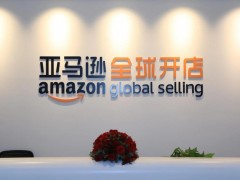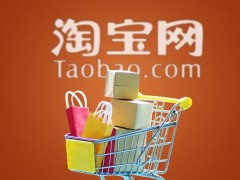What are the advantages of AliExpress local stores?
速卖通平台业务的优点
速卖通平台业务是借助网络和阿里巴巴平台诞生的业务,有着传统国际贸易业务模式无法比拟的优点。
(1)进入门槛低,交易活跃,能满足众多小商家迅速从事出口业务的愿望。速实通平白对卖家没有企业组织形式和资金的限制,进入门槛低,公司和个人都可以在平台上发布商品。
注册成功后发布10个商品,卖家就可以在平台上建立自己的店铺,可以直接面向全球200多个国家和地区的客户或小型商家运营,既可以和客户进行沟通和交流,也可以发布和推广自己的商品。订单交易迅速、活跃,刺激了平台交易的活跃性。
(2)交易流程手续简便。速卖通的一大优点是交易流程非常简便,出口商无需具备企业外贸资质,无需亲自进出口报关,进出口报关由物流方简单操作即可完成。买卖双方交易订单的生成、发货、收货、支付全在线上完成。双方的操作模式,犹如国内的淘宝网平台操作,非常简便。卖家通过第三方物流迅速发货,客户通过银行卡进行交易支付。双方不需要具备 T电汇、信用证、贸易术语等专业的外贸专业知识。
(3)无关税支出。由于速卖通业务的单笔订单成交金额少,因此,送出去的包裹价值普遍较低,一般没有达到进口国海关关税最低起征点的标准,因而无关税支出,这大大降低了客户的购买成本。因此,速卖通平台上的商品具有较强的价格竞争优势。
(4)品种多,价格低廉。由于我国制造业具有聚集优势,因此我国目前成为众多国家销售商品的货源国。国外客户利用网络和速卖通平台,跳过自己国家的零售、批发商,直接向货源的供应基地-中国供货商购买商品。面临的商品选择品种多,价格低廉。因此,速卖通业务跟传统国际贸易业务相比,具有比较强大的市场竞争优势。
(5)短期内无国际贸易摩擦问题。由于速卖通业务订单金额小,因此,该商品往往以礼品或样品方式进入进口国,其对进口国的同类产业影响往往被进口国忽略。因此,短期内小额跨境电商可以避免国际贸易摩擦问题。但从长期来看,若进入该国的商品量较大,也将会对进口国的产业形成冲击,从而产生国际贸易摩擦问题。
Professional answer
Advantages of AliExpress platform business
AliExpress platform business is a business that was born with the help of the Internet and the Alibaba platform. It has advantages that cannot be matched by traditional international trade business models.
(1) Low entry barriers and active transactions can meet the desire of many small businesses to quickly engage in export business. AliExpress does not impose any restrictions on the form of corporate organization and capital on sellers. The entry threshold is low and both companies and individuals can publish products on the platform.
After successfully registering and publishing 10 products, sellers can set up their own stores on the platform and directly operate for customers or small businesses in more than 200 countries and regions around the world. They can communicate and exchange with customers and publish and promote their own products. Order transactions are fast and active, which stimulates the activity of platform transactions.
(2) Simple transaction procedures. One of the major advantages of AliExpress is that the transaction process is very simple. Exporters do not need to have corporate foreign trade qualifications and do not need to personally declare imports and exports. Import and export declarations can be completed by simple operations by the logistics party. The generation, delivery, receipt and payment of transaction orders between buyers and sellers are all completed online. The operation mode of both parties is very simple, just like the operation of the domestic Taobao platform. The seller quickly delivers the goods through third-party logistics, and the customer pays the transaction through a bank card. Both parties do not need to have professional foreign trade expertise such as T wire transfer, letter of credit, trade terms, etc.
(3) No tariff expenditure. Since the transaction amount of a single order of AliExpress business is small, the value of the parcels sent out is generally low, generally not reaching the standard of the minimum customs tariff threshold of the importing country, so there is no tariff expenditure, which greatly reduces the customer's purchase cost. Therefore, the goods on the AliExpress platform have a strong price competitive advantage.
(4) Many varieties and low prices. Due to the agglomeration advantage of my country's manufacturing industry, my country has become a source country for the sale of goods in many countries. Foreign customers use the Internet and the AliExpress platform to skip the retailers and wholesalers in their own country and directly purchase goods from the supply base of the source - Chinese suppliers. There are many varieties of goods to choose from and the prices are low. Therefore, compared with traditional international trade business, AliExpress business has a stronger market competitive advantage.
(5) No international trade friction in the short term. Since the order amount of AliExpress business is small, the goods often enter the importing country as gifts or samples, and their impact on similar industries in the importing country is often ignored by the importing country. Therefore, in the short term, small-scale cross-border e-commerce can avoid international trade friction. However, in the long run, if the amount of goods entering the country is large, it will also have an impact on the industry of the importing country, thus causing international trade friction.
Similar Q&A
recommend How to get the first order from a new AliExpress store?
E-c News Continuously pushing e-commerce knowledge to you








Latest Q&A More
-
Do I need a trademark to open a franchise store on Pinduoduo to sell books?
#Pinduoduo#
-
How to withdraw from a Pinduoduo store
#Pinduoduo#
-
How to withdraw from Pinduoduo merchants
#Pinduoduo#
-
How to pay fees when closing a Pinduoduo store
#Pinduoduo#
-
How to withdraw from Pinduoduo
#Pinduoduo#
-
Which store on Pinduoduo is authentic?
#Pinduoduo#
-
Which stores on Pinduoduo can buy genuine products?
#Pinduoduo#
-
How to check the store under Pinduoduo
#Pinduoduo#
-
How to receive Pinduoduo online game products
#Pinduoduo#
-
How to sell the electronic version on Pinduoduo
#Pinduoduo#
E-c News 2025-12-19 00:35:14

- African netizens use China Africa cross-border e-commerce platform for online shopping
- how is the new seller of cross-border e-commerce doing?
- how can cross-border e-commerce Amazon sell on Amazon platform without goods?
- Amazon store opening process and cost analysis!
- Amazon plans to expand its pharmacy business on a large scale and will add same day delivery service
